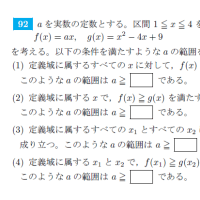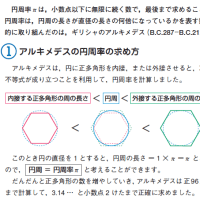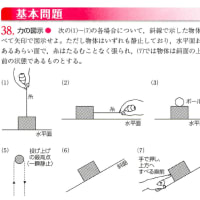1. 日本語に合うように( )内の語句を並べかえなさい.
1) 彼が日本語を話すとは驚きだ.
(he, is, speak, that, it, should, Japanese, surprising).
2) 彼女が彼の態度に腹を立てるのも当然だ.
(natural, she, attitude, should, at, be, that, it's, angry, his).
3) ペンを使おうと鉛筆を使おうとかまいません.
(matter, use, a pen, doesn't, it, whether, you, or, a pencil).
4) 彼がどこで幼年時代を過ごしたかは明らかでない.
(spent, clear, is, he, his, childhood, it, not, where).
2. 次の各文を日本語に直しなさい.
1) It's no wonder that the singer is popular among young people.
2) It's possible that there is life on other planets.
3) It is not certain that all the passengers were rescued.
4) It makes no difference whether the train is delayed or not.
5) It's a mystery how the burglars got into the house.
6) It is not clear who broke the vase.
3. ヘビに対する誤解
Many people are very afraid of snakes. It is true that poisonous snakes can make you ill or even kill you, but there are actually very few poisonous snakes. Most snakes are harmless. In fact, they are usually afraid of people. If you meet a snake in your garden, it will probably slide quickly away.
文章3 労働の倫理とは? 青山学院大学
教皇権を有するローマ・カトリック教会は、民衆に免罪符を販売して利益を得るなどし、莫大(ばくだい)な富を独占していた。しかし十六世紀には、中世カトリック教会の道徳的な腐敗や悪弊を正すために、【宗教改革】が起こる。ルターらは、カトリック教会に対してプロテスタント教会を興し、人々の信仰は正しく理解された聖書に基づくべきだとし、教皇権を批判した。さらに、宗教改革は社会的な拡がりをも持った。プロテスタントの禁欲や勤勉、節制などの倫理観は教会外の人々の間にも広く浸透し、民衆は、神に奉仕する代わりに雇用主への奉仕として勤勉に働き、築いた富は倹約した。富がより多く資本家のもとに蓄積されるという事実も、神が金銭の誘惑から心弱い者たちを守護するという倫理観によって正当化された。宗教改革と経済の【資本主義】体制化はほぼ同時に起こったが、プロテスタントの倫理観は、資本家と労働者の間の不平等に大義名分を与えるものにもなったのである。そしてその後の【産業革命】とも相まって、資本主義体制は確立されていくことになる。
一方、【社会主義】は資本主義における不平等を批判する。資本主義体制下において、私有財産を持たない労働者は自らの労働を商品として資本家に提供するが、社会主義は、そのことが労働者の人間性を奪っていると考えるのである。そして、富を一部の資本家の私有ではなく社会の管理下に置くことで人々に平等に分配し、労働者の人間性を回復して、理想的な社会を築こうとした。しかし現実の社会では、富の独占や、競争原理の喪失などの問題を生み、ソ連などの例に見られるように、社会主義はその理想とする機能を果たさぬまま崩壊してしまうのである。
Sentence 3 What is work ethics? Aoyama Gakuin University
The Roman Catholic Church, which holds the papacy, had a monopoly on enormous wealth, such as by selling indulgences to the people for profit. In the sixteenth century, however, the Reformation took place to correct the moral corruption and abuses of the medieval Catholic Church. Luther and others criticized the papacy by establishing a Protestant church against the Catholic church, saying that people's faith should be based on a correct understanding of the Bible. Furthermore, the Reformation had a social spread. Protestant ethics such as abstinence, diligence, and moderation spread widely among people outside the church, and people worked diligently in service to their employers instead of serving God, and thrifted their wealth. The fact that more wealth would accumulate with the capitalist was also justified by the ethic that God protected the weak from the lure of money. The Reformation and the "capitalist" establishment of the economy happened almost simultaneously, but the Protestant ethic also gave a justification for the inequality between capitalists and workers. Coupled with the industrial revolution that followed, the capitalist system was established.
On the other hand, [socialism] criticizes inequality in capitalism. Under the capitalist system, workers without private property offer their labor as a commodity to capitalists, but socialism believes that this deprives workers of their humanity. By putting wealth under the control of society rather than privately owned by some capitalists, he tried to distribute wealth equally among people, restore the humanity of workers, and build an ideal society. However, in the real world, problems such as monopolization of wealth and loss of the principle of competition have arisen, and as seen in the example of the Soviet Union, socialism collapses without fulfilling its ideal function.
























